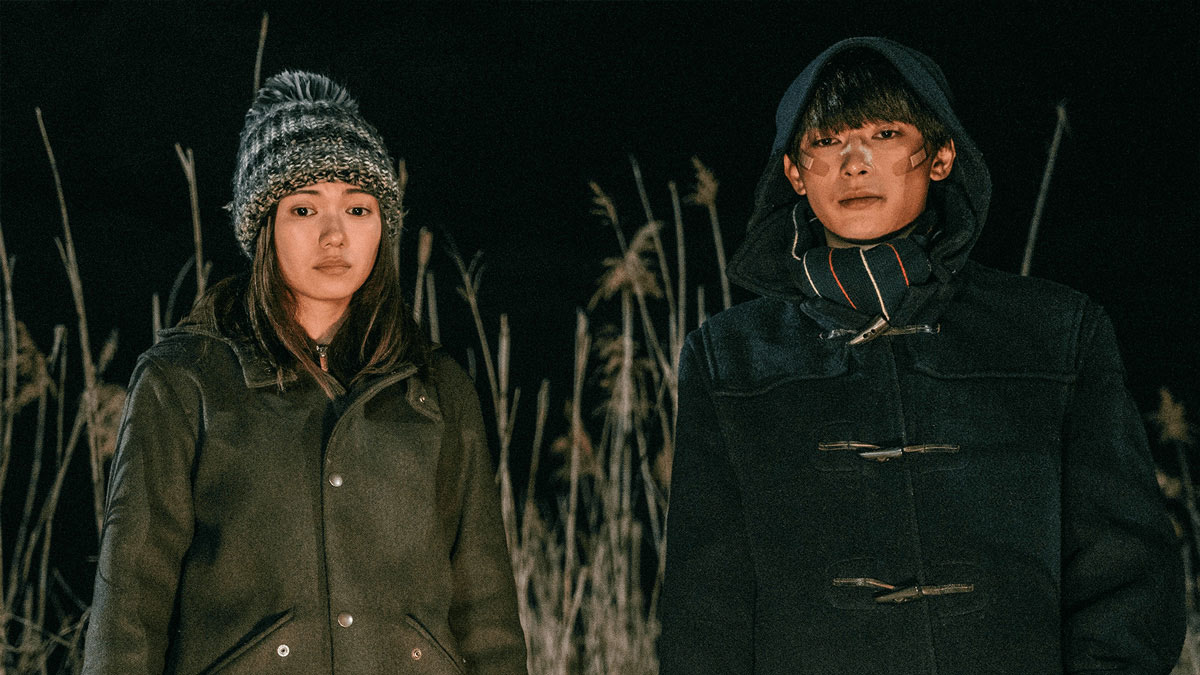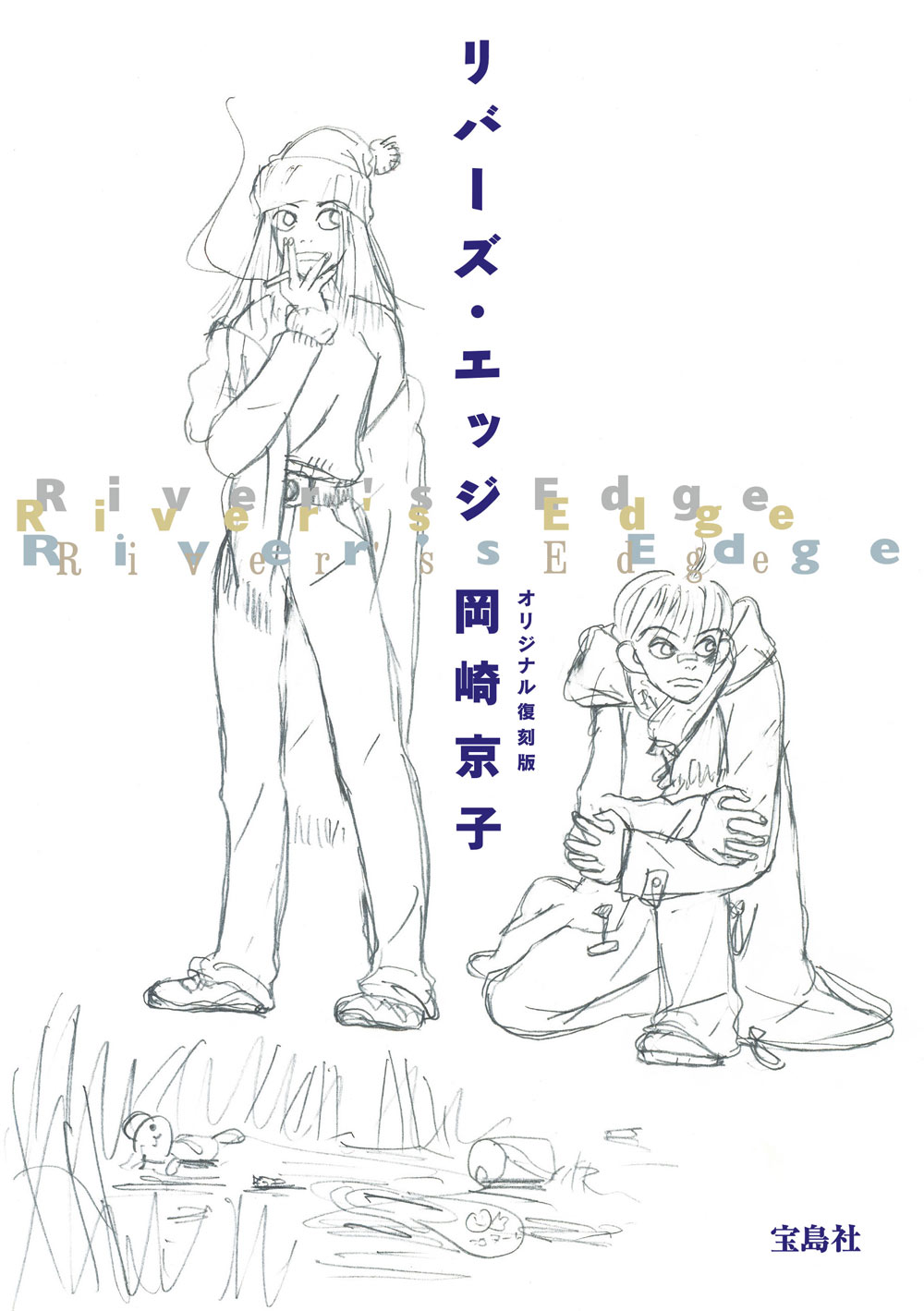
© 2018 “River's Edge” Production Committee/Kyoko Okazaki/Takarajimasha
Thinking back to ``River's Edge'', the deep relationship between genius manga artist Kyoko Okazaki and movies
2018.02.16
*Information as of February 2018 article publication.
"River's Edge" synopsis
"Wakakusa-san, do you have free time tonight? I'll tell you about my secret treasure." After Haruna Wakakusa (Fumi Nikaido) saves Yamada (Ryo Yoshizawa) from being bullied by her boyfriend Kannonzaki (Shuhei Uesugi), she is invited to a riverbed at night and sees an abandoned corpse. Haruna is at a loss for words when Yamada says, ``Seeing this gives me courage.'' Furthermore, Kozue (SUMIRE), a model junior with whom she shares the existence of a corpse as a treasure, appears, and the three of them form a unique friendship that never develops into love. Yamada hides the fact that he is gay and works as a prostitute in the city, Kanna (Aoi Morikawa) develops extreme love for Yamada, Kannonzaki who cannot control his violent urges, Kozue who vomits after eating large amounts of food, Kannonzaki and Kannonzaki. Haruna's friend Rumi (Shiori Doi) has a physical relationship with her. In the stagnant daily life of a closed school, each of them was inflating something on the verge of exploding. Caught up in their love, hate, and loneliness, Haruna, who tries to be strong, also feels empty and unable to attach herself to anything. One day, Haruna receives news from Yamada that a new corpse has been found...
Index
- A stunning film adaptation of the legendary manga ``River's Edge'' that respects the original work.
- Kyoko Okazaki, Godard, and Yasujiro Ozu
- What is the American movie of the same name that influenced "River's Edge"?
A stunning film adaptation of the legendary manga ``River's Edge'' that respects the original work.
It was really scary to watch. I've never seen a movie where I was so nervous right up until the movie started.
Kyoko Okazaki's legendary manga `` River's Edge '', which was published in 1993-94 (serialized in Takarajimasha's magazine ``CUTiE''), has been made into a movie after about 25 years, a quarter of a century. The generation that was directly affected by this masterpiece in their youth will not be able to remain calm about this masterpiece that represents, or rather symbolizes, the 90s. I was also very shocked when I saw it in real time (I was just barely a student), and it has remained at the top of my top ten list for many years.
Will the movie version be able to overcome this extremely high hurdle that seems to reach the sky? Also, with what necessity do you intend to connect the reality of that time and the present?
However, when you open the lid...! This is a wonderful work that is surprisingly carefully synchronized with the spirit and atmosphere of the original work. I was impressed by the quality of the work, which took the enormity of the task seriously and responded directly to the challenge.
The director is Isao Yukisada. The specialty flashback format used in " Crying Love at the Center of the World " (2004) and " Narratage " (2017) is also suppressed, and the image of a youth without the Internet or mobile phones is kept as a continuation of the present day. I held it out. This is probably backed by his intention to question the universality of Okazaki's manga in today's world.

“River's Edge” © 2018 “River's Edge” Production Committee/Kyoko Okazaki/Takarajimasha
This is the second time that Kyoko Okazaki's manga has been made into a movie. In 2012, Okazaki's late masterpiece `` Helter Skelter '', which is comparable to ``River's Edge'' (although this one is still unfinished), was made into a live-action film by director Mika Ninagawa. This was developed as a flashy ``show'' based on sympathy for the original work, but boldly hacked with Ninagawa's aesthetics, and featuring the lead actress Erika Sawajiri's explosive performance. With the catchphrase, ``I'll show you what you want to see,'' the film was a huge hit, grossing 2.15 billion yen at the box office, although it received strong mixed reviews.
In contrast, the approach of the movie version of River's Edge is closer to the fundamentalism of the original. Of course, he does not simply trace the frames of the manga, but based on his deep love and understanding of the original work, he reconstructs the whole thing and translates it into the language of film. Kenji Maki's cinematography captures the suburban industrial area, Yuko Setake's music, and more, all serve as a representation of the brutality and emptiness of everyday life, which Okazaki called a "flat battlefield" (a quote from a poem by science fiction writer William Gibson). high level work. The theme song is a new song `` Arpeggio (Surely the end of the magic tunnel)' ' written by Kenji Ozawa, an ally of Okazaki who can be called a spiritual sister and brother. tears of gratitude……!

